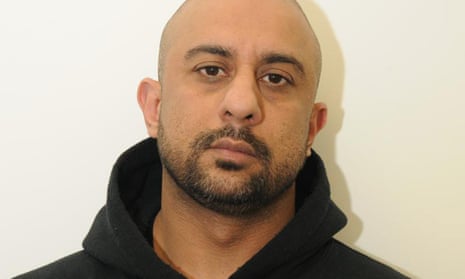A prisoner convicted of stirring up religious hatred has won the first round in his legal challenge to emergency legislation preventing early automatic release of terrorism offenders.
Lawyers for Mohammed Zahir Khan, who is serving four-and-a-half years, are arguing that the Terrorist Offenders (Restriction of Early Release) Act, which only became law in February, discriminates against Muslims.
In a high court hearing conducted over remote video links, Hugh Southey QC, representing Khan, said terrorist prisoners are being treated differently from other inmates and that the regulations breached his human rights.
The new rules, which require those convicted of terror offences to spend two-thirds of their term in jail before being considered for release, are directed against those holding “particular Islamic beliefs” and have a “disproportionate impact” on Muslims, the court was told.
Under the previous regime, Khan would have been eligible for automatic release in February 2020. He is now due to be considered for release in November 2020.
On Tuesday, Mr Justice Garnham ruled that Khan had an “arguable case” and that his claim should now be fully analysed at a trial. The challenge, he said, raised a matter of “some considerable” importance and public interest. “It needs to be dealt with quickly,” he added.
Khan, who is in his early 40s and originally from Birmingham, had been running a shop in Sunderland when he was arrested. He was sentenced at Newcastle crown court in May 2018 after being convicted of encouraging terrorism and stirring up religious hatred. He admitted encouraging acts of terror and inciting religious hatred via social media.
The terrorist offenders (restriction of early release) bill was introduced into parliament the day after a recently freed terror offender, Sudesh Amman, launched a knife attack in Streatham, south London. Just over three weeks later the bill became law. It was the second attack in the space of three months involving a recently released terrorist, following Usman Khan’s killing of two people near London Bridge.
Hugh Southey QC, who led Khan’s legal team, said the legislation amended an early release regime and extended the “requisite custodial period”. It meant those convicted of terror offences could only be released on licence after a parole board had considered their case.
Southey said the regulations were “unlawfully discriminatory” and breached rights enshrined in the European convention on human rights – the right to liberty and the right not to be held guilty of an offence which did not constitute an offence when it was committed.
“According to the law in force at the time of sentence, he should be entitled to automatic early release at [the] halfway stage of his sentence,” Southey said.
But Sir James Eadie QC, representing the justice secretary, Robert Buckland, said the challenge should be dismissed. The legislation was not discriminatory, he added. The new provisions applied equally to all terrorist offenders, regardless of “race, religion or otherwise”.
In a written submission to the court, Eadie argued: “The 2020 act pursues the legitimate aim of protecting the public from dangerous offenders, by ensuring that they are kept in custody for a longer proportion of the penalty part of their sentence.
“Where a prisoner is considered by the Parole Board to continue to pose a risk to the public, they will not be released but instead will continue to be detained for the whole of the penalty part of their sentence, as originally imposed by the sentencing court.”
Sir James said parliament was entitled to conclude that terrorist offenders were “to be distinguished on the basis of immediate and significant risk materialising” and the “difficulties in identifying and managing this risk”.
A full trial of the issues is expected in the coming months.
